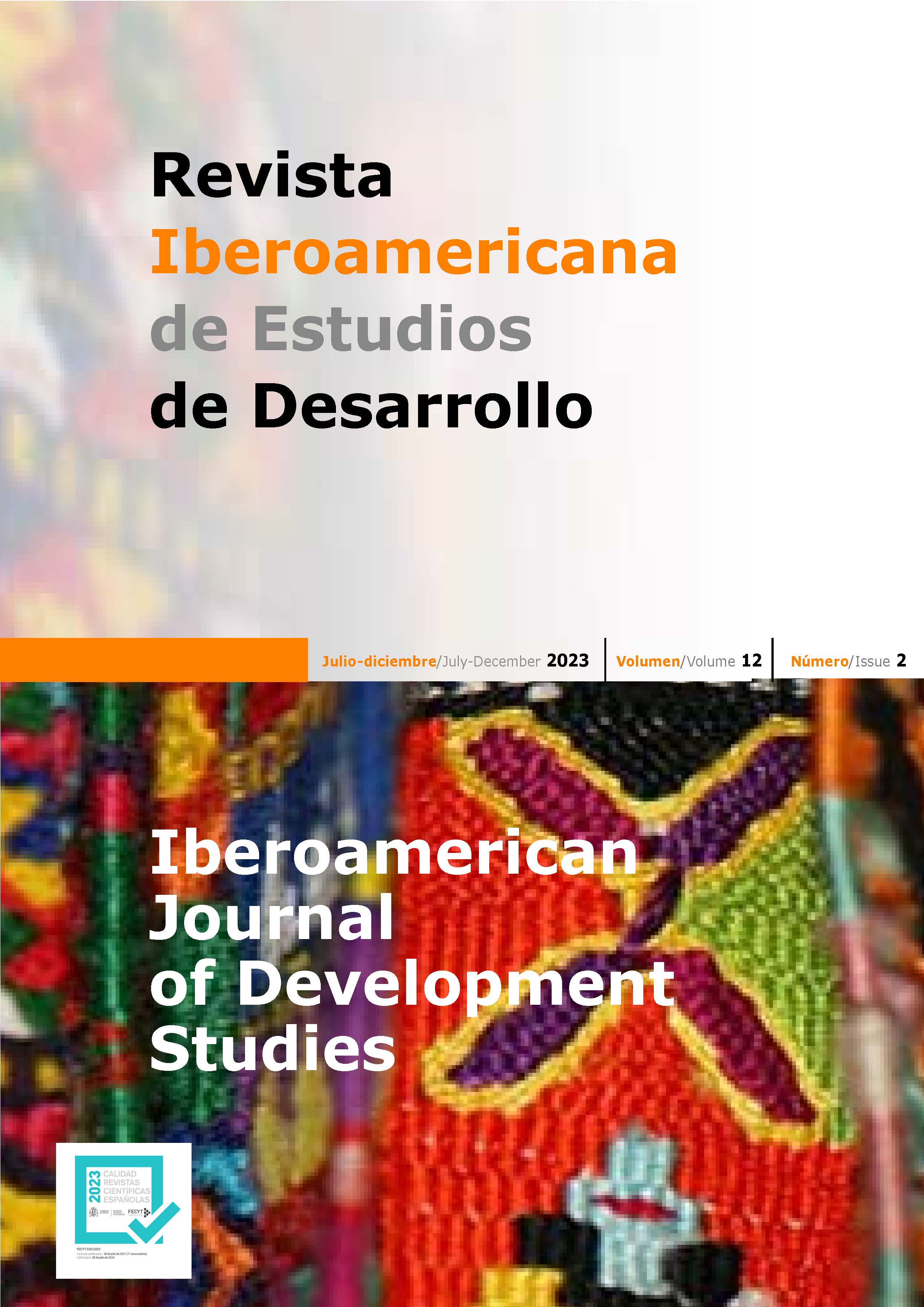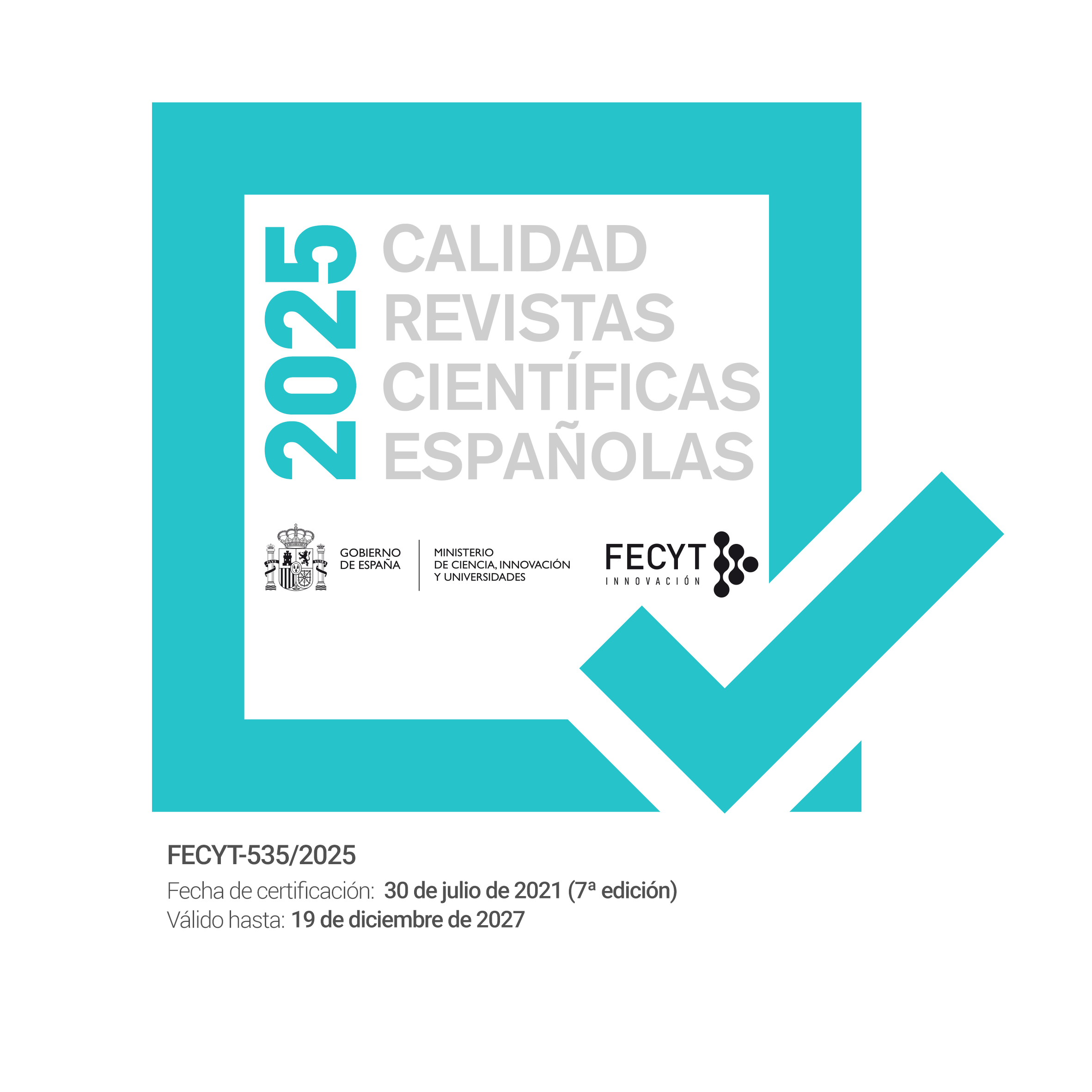From action to transaction: some implications of pragmatism and its concept of agency for development research and practice
DOI:
https://doi.org/10.26754/ojs_ried/ijds.363Palabras clave:
pragmatismo, agencia, ontología filosófica, desarrolloResumen
El desarrollo sugiere la noción de «buen cambio» y su estudio y práctica se concentran en materializarlo. Quizá, debido a este énfasis en la aplicación, los aspectos filosóficos han recibido menor atención relativamente, a pesar de que iluminar estos puede contribuir a aquella. El positivismo y, en menor medida, el constructivismo, con sus ventajas y desventajas, han dominado el área. Contra esta dicotomía convencional, en este artículo se argumenta en favor del pragmatismo filosófico clásico como una alternativa y lo hace empleando la ontología filosófica. Desde esta perspectiva, el pragmatismo se suscribe al monismo mente-mundo y al fenomenalismo. Así, demanda una sana consciencia y crítica de las preferencias y sesgos, sean personales o contextuales, en uno mismo o en los sujetos de interés. Implica también un llamamiento a la pluralidad, para emplear la razón práctica en la resolución de problemas prácticos, volviendo situaciones indeterminadas en determinadas, lo que genera afirmaciones justificadas.
Descargas
Referencias
ALKIRE S (2009). Concepts and measures of agency. In: Basu K, Kanbur R (eds.). Arguments for a Better World, Essays in Honor of Amartya Sen, vol. I. Oxford University Press, New York (US), pp. 455-474.
ALKIRE S (2010). Human Development: Definitions, Critiques and Related Concepts. Human Development Research Paper 2010/01.
BACON M (2012). Pragmatism, an Introduction. Polity, Cambridge (UK).
BALDWIN J (1988). Habit, Emotion, and Self-Conscious Action. Sociological Perspectives 31(1): 35-57.
BERNSTEIN R (1983). Beyond Objectivism and Realism: Science Hermeneutics and Praxis. University of Pennsylvania Press, Philadelphia (US).
BHASKAR R (1975). A Realist Theory of Science. Verso, London (UK).
BHASKAR R (1998). The Possibility of Naturalism. Routledge, London (UK).
BLUMER H (2004). George Herbert Mead and Human Conduct. Altamira Press, New York (US).
CALDWELL B (1994). Beyond Positivism. Economic Methodology in the Twentieth Century. Routledge, New York (US).
CARLE S (2005). Theorizing Agency. American University Law Review 55(2):307-387.
CHAMBERS R (2004). Ideas for Development. IDS working paper 238. Sussex (UK).
CHERNOFF F (2007). Theory and Metatheory in International Relations: Concepts and Contending Accounts. Palgrave, New York (US).
CHERNOFF F (2009). The ontological fallacy: A rejoinder on the status of scientific realism in International Relations. Review of International Studies 35(2):371-395.
CURRIE-ADLER B (2016). The state of development studies: origins, evolution and prospects. Canadian Journal of Development Studies 37(1):5-26.
DELLA PORTA D, KEATING M (2008). How many approaches in the social sciences? An epistemological introduction. In: Della Porta D, Keating M (eds.). Approaches and Methodologies in the Social Sciences. A Pluralist Perspective, Cambridge University Press, London (UK), pp. 19-39.
DEWEY J (1930). Human Nature and Conduct. Henry Holt and Company, New Jersey (US).
DEWEY J (1931). Philosophy and Civilization. G. P. Putnam’s Sons, New York (US).
DEWEY J (1938). Logic: The Theory of Inquiry. Henry Holt and Company, New York (US).
DEWEY J (1958). Experience and Nature. Dover Publications, New York (US).
DEWEY J (1985). The Middle Works of John Dewey 1899-1924, vol. 12. Southern Illinois University Press, Carbondale (US).
DEWEY J (2001). Democracy and Education. Pennsylvania State University, Pennsylvania (US).
GARCÉS P (2016). Neither «Mind» nor «Things» but Acting: Some Philosophical Implications of Pragmatism for International Relations Inquiry. Analecta política 6(11):227-248.
GARCÉS P (in press). Form follows function in evidence-based public policy: the pragmatist alternative to the positivist orthodoxy. Iberoamerican Journal of Development Studies.
GASPER D (2000). Development as Freedom: taking economics beyond commodities – the cautious boldness of Amartya Sen. Journal of International Development 12(7):989-1001.
GORSKY P (2013). What is Critical Realism? And why should you care? Contemporary Sociology 42(5):658-670.
HARDY M (2016). «I know what I like and I like what I know»: Epistemology in practice and theory and practice again. Qualitative Social Work 15(5-6):762-778.
HARRISS J (2002). The case for cross-disciplinary approaches in international development. World Development 30(12):487-496.
HILDEBRAND D (2003). Beyond Realism and Anti-Realism: Dewey and the Neopragmatists. Vanderbilt University Press, Nashville (US).
HILDEBRAND D (2008). Dewey: A Beginner’s Guide. Oneworld Publications, Oxford (UK).
HOLLIS M (2010). The Self in Action. In: Peters RS (ed.). John Dewey Reconsidered. Routledge, New York (US).
HUMPHREYS A (2013). Applying Jackson’s Methodological Ideal-Types: Problems of Differentiation and Classification. Millennium: Journal of International Studies 41(2):290-308.
JACKSON P (2011). The Conduct of Inquiry in International Relations, Philosophy of Science and its Implications for the Study of World Politics. Routledge, New York (US).
JOAS H (1996). The Creativity of Action. Polity Press, New York (US).
JOHNSON D, SHIFFLETT P (1981). George Herbert Who? A Critique of the Objectivist Reading of Mead. Symbolic Interaction 4(2):143-155.
KILPINEN E (2012). Human Beings as creatures of habit. In: Warde A, Southerton D (eds.). COLLeGIUM: Studies across Disciplines in the Humanities and Social Sciences: The Habits of Consumption, vol. 12. Helsinki Collegium for Advanced Studies, Helsinki, Finland, pp. 45-69.
KLOPPENBERG J (1999). Pragmatism: an old name for some new ways of thinking? In: Dickstein M (ed.). The Revival of Pragmatism: New Essays on Social Thought, Law and Culture. Duke University Press, London (UK), pp. 83-127.
KRATOCHWIL F (2011). Ten points to ponder about Pragmatism. In: Bauer H, Brighi E (eds.). Pragmatism in International Relations. Routledge, New York (US), pp. 11-25.
MEAD G (1972). Mind, Self and Society. The University of Chicago Press, Chicago (US).
MEHTA L, HAUG R, HADDAD L (2006). Reinventing development research. Forum for Development Studies 33(1):1-6.
MENAND L (1997). Pragmatism: A Reader. Vintage Books, New York (US).
MISAK C (ed.) (2007). New Pragmatists. Oxford University Press, New York (US).
MOLTEBERG E, BERGSTRØM C (2000). Our Common Discourse: Diversity and Paradigms in Development Studies, Centre for International Environment and Development Studies, Agricultural University of Norway (NORAGRIC) Working Paper Number 20. Ås (Norway).
MOSES J, KNUTSEN T (2012). Ways of Knowing: Competing Methodologies in Social and Political Research. Palgrave Macmillan, New York (US).
PATOMÄKI H, WIGHT C (2000). After Postpositivism. The Promises of Critical Realism. International Studies Quarterly 44(2):213-237.
PEIRCE C (1878). How to Make our Ideas Clear. Popular Science Monthly 12:286-302.
PIHLSTRÖM S (2013). Neopragmatism. In: Runehov A, Oviedo L. Encyclopedia of Sciences and Religions. Springer, Dordrecht (Germany), pp. 1455-1465.
PUTNAM H (2002) The Collapse of the Fact/Value Dichotomy and Other Essays. Harvard University Press, Cambridge (US).
QUINTON A (2010). Inquiry, thought and action: John Dewey’s theory of knowledge. In: Peters RS (ed.). John Dewey Reconsidered. Routledge, New York (US), pp. 1-11.
SEN A (1985). Well-Being, Agency and Freedom: The Dewey Lectures 1984, The Journal of Philosophy 82(4):169-221.
SEN A (1999). Development as Freedom. Oxford University Press, New York (US).
SIDORSKY D (1977). John Dewey: The Essential Writings. Harper Torchbooks, New York (US).
SMITH J (2004). Dewey on inquiry and language. In: Khalil E (ed.). Dewey, Pragmatism, and Economic Methodology. Routledge, New York (US), pp. 133-152.
SUMNER A (2006). What is development studies? Development in Practice 16(6):644-650.
SUMNER A, TRIBE M (2008a). International Development Studies: Theories and Methods in Research and Practice. Sage Publications, London (UK).
SUMNER A, TRIBE M (2008b). What could development studies be? Development in Practice 18(6):755-766.
TALISSE R, AIKIN S (2011). Introduction. In: Talisse R, Aikin S (eds.). The Pragmatism Reader. Princeton University Press, New Jersey (US), pp. 4-11.
TAYLOR C (1995). Philosophical arguments. Harvard University Press, Cambridge (US).
TAYLOR C (1985). Human Agency and Language, Philosophical Papers 1. Cambridge University Press, London (UK).
WIGHT C (2006). Agents, Structures and International Relations: Politics as Ontology. Cambridge University Press, Cambridge (US).
WILEY N (2008). The Pragmatists’ theory of the self. Studies in Symbolic Interaction 31:7-29.
WOOLCOCK M (2007). Higher education, policy schools, and Development Studies: what should masters degree students be taught? Journal of International Development 19(1):55-73.
Descargas
Publicado
Número
Sección
Licencia
Derechos de autor 2023 Pablo Garcés-Velástegui

Esta obra está bajo una licencia internacional Creative Commons Atribución-NoComercial-SinDerivadas 4.0.



